Why Christmas Carols Make Me Cry
by Alison Jean Ash
“..and cried when he remembered his mother.”
~ Jean de Brunhof
The Story of Babar
Preface: My Mother and Me
My mother has been the single most important person in my life.
That sounds unlikely, even to me. I am sixty-seven years old. I’ve been married three times—happily at last —and survived other tumultuous passions that (mercifully) didn’t go that far. I have two children, four grandchildren, and several dear friends of various genders who are of great importance to me.
All the same, it’s true. Mom—or, as she was known in various contexts, Shirley Anne Kellogg, Anne Ash, Anne Cramer, Little Tigger, Grandma Tig—sat squarely in the center of my universe until she died, in January of the year 2000, and for some years afterward.
Our relationship was tender, turbulent, and cruel, wistful with nostalgia, alight with laughter. Each of us felt for the other, I believe, equal parts of love, irritation, bitterness, and genuine admiration.
For good and ill, I her eldest daughter, revolved around her, planet to her sun. Now, almost fifteen years after her death, her memory no longer rules my daily life. Still, whenever I pause to look at
who I am, and at the forces that have shaped my mind and heart—by precept, by example, by accident, and sometimes by opposition—there she is, still, at the center.
Christmas Day, 2014
Twelve days before Christmas I attended a performance of the Bremerton Symphony Orchestra with my husband. The program consisted of a Christmas carol sing-along, followed by a Tchaikovsky piano concerto, followed in turn by excerpts from Handel’s Messiah.
My mother, growing up as the daughter of a small town minister, sang alto in her church choir. When I was a baby, she sang to me, lullabies, old ballads, songs in French and Russian and Welsh, and the darkly humorous Irish songs she’d learned from her grandfather.
When I grew older, we sang together, especially at Christmas-time. We began a month before the day to play our holiday record albums and to sing carols together. When we played the Messiah, she always sang along with with the alto part her favorite sections, especially “For Unto Us a Child is Born.”
As a girl I sang mezzo soprano. In some carols, such as “Angels We Have heard on High” with its chorus of “gloria in excelsis deo,” my mother taught me to hold the melody while she sang the alto in counterpoint, each voice singing its phrases in separate, independent but interlocking rhythms.
Of all the games we played together, from Chinese Checkers to Scrabble, from one-upmanship to emotional manipulation (more deliberate on her part, I believe, than on mine, and certainly far more skilled), the interweaving of our voices was the most intricate and the most joyful. For several weeks every winter, for ten or twelve years, we made a kind of magic together.
The night we went to the Symphony, my husband and I, we both became teary-eyed during the
carol singing, as various songs reminded each of us in turn of our departed mothers. Afterwards we dried our eyes to enjoy a piece with no associations for us, the Tchaikovsky, performed with fiery passion.
After intermission came the Handel. With the opening chords, familiar as ever though I hadn’t heard them in twenty years, my eyes began to fill with tears. With “For unto us a Child is born,” the tears spilled out and rolled freely down my cheeks. I had all I could do not to sob aloud.
I slept badly that night, and also the next night, Sunday. I woke Monday morning with my feet in agony, especially the right heel, in which I have a bone spur, legacy of the plantar fasciitis I first suffered immediately after her death. I couldn’t set my heel down all day, in spite of large doses of ibuprofen, but walked on the ball of my right foot, holding onto something or someone.
My Feet, My First Chakra
For two years after my mother died, I’d walked in pain, near-crippled by the fasciitis, until I healed myself, not only by stretches and exercises, yoga and chakra work, but also by meditating, painting, and especially by singing, and at last by weeping for her.
Since I had never fully yielded to my grief after her death, the clogged flow of my emotion had settled into physical manifestation as pain in my feet. Once I understood that, I immersed myself in memories of my mother.
Deliberately, almost forcibly, I opened myself to grief for her, grief which necessarily included rage: rage at her, at all the cruel and sneaky things she did to me; rage at the loss of her and all she did for me; rage at whatever had happened to her or been done to her, apparently quite early in her life, that made her spirit so full of pain and terror, rage at whatever or whoever it was that had broken her.
Rage at her for being broken.
My class-work that year at The Evergreen State College, a full-time Coordinated Studies program about the wisdom of the body and the connection between emotional pain and physical pain, helped focus the process. Readings ranged from hard science to spirituality, and we did yoga eight hours a week. I learned that the feet belong to the First Chakra, which is connected to home, family, our sense of being rooted in this world. My mother’s death had, in a far more physical sense than I had realized, knocked my feet our from under me.
In December of 2001, I spent a week at a retreat center. I painted—not something I do well or often, but this was therapy, not art. First, as warm-up, I made a mad bloody picture of the goddess Kali, and then an equally mad and bloody-looking picture of my mother that I call Sea Monster Mother.
A naked woman with her face stands at the bottom of the sea, the mouth exaggeratedly wide and hungry. Her limbs are impossibly long and all her digits stretch away into tentacles, coiling, reaching for something to grip in a half-strangling hold, as she gripped me in her need for so much of my life.
Through these paintings I was able to express some of my rage, so widely and unclearly directed, and some of my resentment of the way she had clung to me, manipulated me, used me to feed her voracious needs. I expressed my rage and pain in both senses: I gave it utterance, and I pushed it out of myself, leaving me cleaner and kinder, more open to grieving for her.
Near the end of the week I sat alone in a yurt singing, first the Gayatri Mantra, which I’d learned in yoga. Crudely translated from ancient Sanskrit, it means, “Praise the glorious light of the creative principle.” I sang it 108 times, the traditionally prescribed number, and then I went on singing.
I sang everything I could think of: the lullabies she sang me; the funny, often macabre Irish songs handed down from her flame-haired grandfather; all the songs, the madrigals and hymns and Christmas carols we’d sung together. I sang until at last the vibrations pried open the locked-up fountains of my tears, and then I continued to sing as I wept for her.
That afternoon I laced on my boots and walked along the highway to the ocean beach, a round trip of about twelve miles. At supper time I plodded back uphill to the lodge exhausted, with a fierce ache in my lower back, but no pain in my feet. I was healed. From that time the pain in my feet departed and I could walk normally again.
My Book
A year after that, at the end of 2002, I began to write a book about my mother, about her life and about our life together. I’ve worked at it, off and on, ever since, sometimes a few hours a day every day for a month, occasionally six to eight hours a day during a week-long writing retreat. Between those periods of intensity, I’ve returned to it in sporadic, desultory fashion, altering a few words here and there like a painter adding little touches and then stepping away to let them dry.
In 2013 I entered another period of working on it every day: looking at it again, revising and re-organizing, writing new sections, even reading bits of it aloud at a literary open mic. I presented some excerpts to my writing critique group (though one member balked at it, finding it too “confessional”). But at the time of that Christmas concert in 2014, I’d barely touched it for months. I’d been writing romantic fiction, with some success. An independent e-book firm had put out my novella that fall, and I’d written and published a Christmas story and was at work on my Valentine story.
Aftermath of the Concert
Tuesday morning after the concert, after I’d hobbled around in pain all the previous day, I woke from a dream. It began in a theater where a play was in rehearsal, a large amateur production. (I should mention here that my mother did quite a bit of amateur acting, to great acclaim, in her thirties and forties, and was at all times theatrical in daily life.)
The play, apparently, was about a shipwreck. A crowd of “survivors,” sailors and rescuers milled around onstage, and more actors waited backstage for their entrance. My mother was surely there somewhere.
Suddenly, in the way that dreams change scene without warning, we were all outdoors, by the sea, some of us in the sea. Now it was not a stage play but a film being produced. Survivors flailed in the water or clung to rafts; sailors manned lifeboats. The cameras and all—sound, lights, etc.—were also on boats. The scene was even more chaotic than in the theater, and the waters of the sea were real, salt and wet and constantly moving.
The director’s voice rose above all the noise. “Okay, short break now. I thought we could do this in one take, but I was wrong.” He dismissed everyone to dry off and dress, eat, rest, etc., and I awoke.
At breakfast I recounted the dream, which I recalled very clearly, to my husband, and suddenly I understood. Yeah, Mom I get it, I thought. I’d imagined I could grieve for her in one take, but I’d been wrong.
So I got back to work on my book—and my feet immediately stopped hurting.
Christmas-tide 2015
Again, the Symphony, the Christmas carols, the tears. It’s the opening chords of “Joy to the World” that feed the fountains this time—an instrumental performance, but I sing the words in my head, harmonizing with my mother’s ghost. And even though the orchestra is now playing another carol, we go on singing, my mother and I. We finish the first verse and move on to the second. “Fields and floods, rocks, hills and plains/Repeat the sounding joy/Repeat the sounding joy/Repeat, repeat the sounding joy.”
Shouldn’t I know by now? Well, yes, I do know. And my feet don’t hurt. I don’t need the reminder this time. Beginning today, December 26, I am leaving for another week-long writing retreat, which I will devote to the book, her book. The Valentine romance will have to wait.
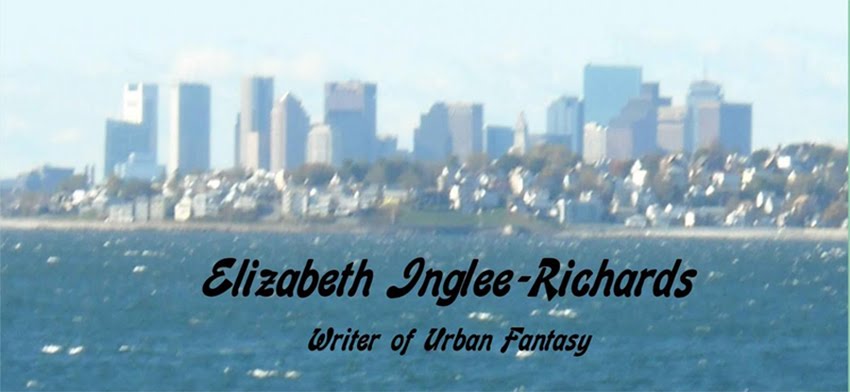
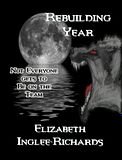
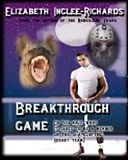
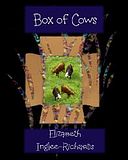
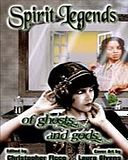
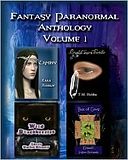
No comments:
Post a Comment